WantedDesign is a dynamic connector and amplifier for global design, fostering creative synergy and serving as a pivotal crossroad for the international design community across Latin America, North America, and Europe.
From Idea to Impact: ECO Solidarity online exhibition champions sustainable design
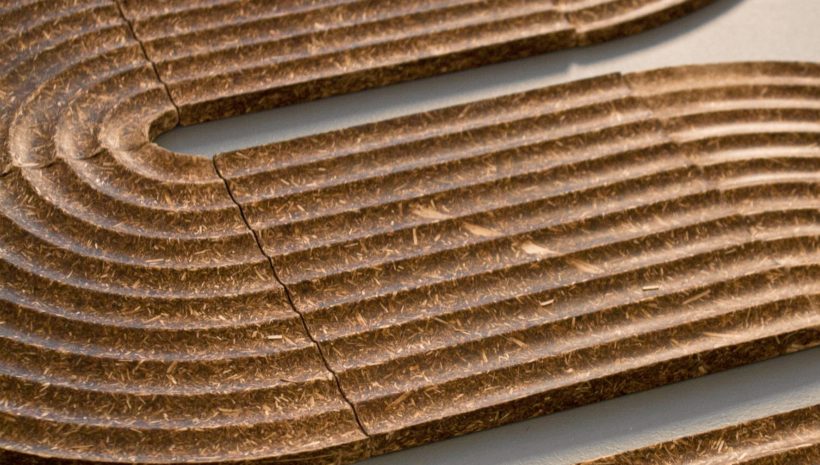
From Idea to Impact: ECO Solidarity online exhibition champions sustainable design
WantedDesign is proud to present ECO Solidarity 2021 as the current online exhibition on our new platform wanteddesign.online
“We hope this exhibit will find echoes in the US and initiate future collaborations to grow the ECO Solidarity movement across the globe,” say Odile Hainaut and Claire Pijoulat, WantedDesign co-founders. “Most of all, we hope it will contribute to raising awareness of the emergency to change the way we design, produce and consume in a sustainable and more equitable way.”
Following a well-received session at CLOSEUP 2021 in May, presented by the International Contemporary Furniture Fair (ICFF) and WantedDesign Manhattan, the ECO Solidarity project continues with a more robust online exhibition with additional design studios and thoughtful contributions from industry experts.
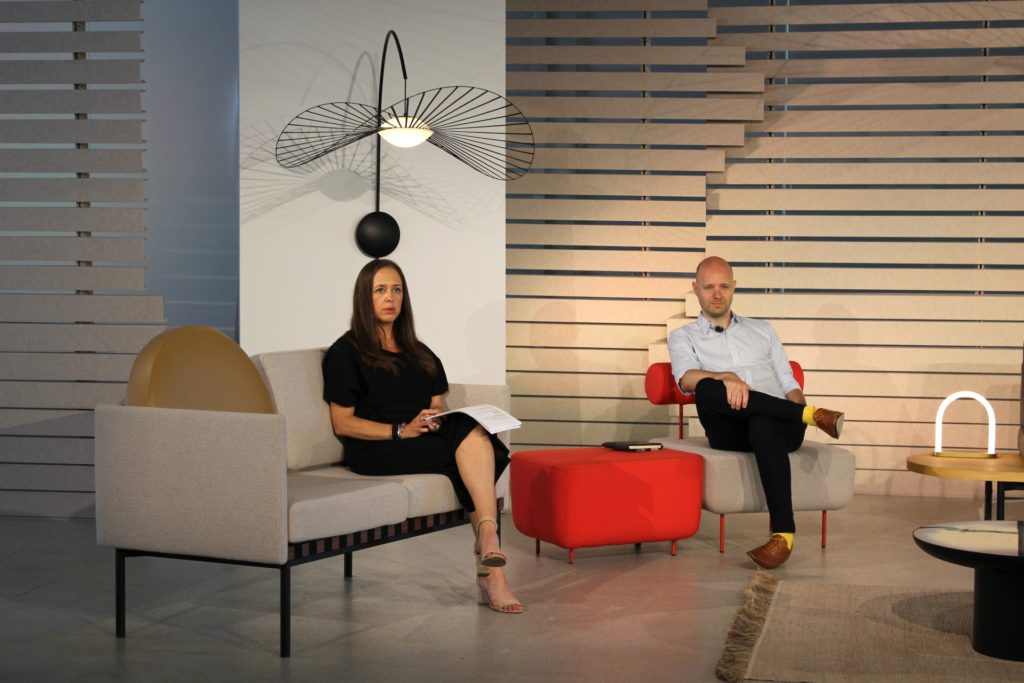
We spoke to Axel Clissen, co-founder of Socle and ECO Solidarity Advisory Committee Member, on ECO Solidarity being the bridge for sustainable concepts between Europe and the United States.
“It’s about the symbiosis between two continents. On one end, a very innovative, research-oriented way of working. On the other end, it’s very market-oriented and it’s about business. I think the future of design — the future of creativity — is about mixing those things together,” he said.
Axel Clissen is a Belgian architect, designer & educator and co-founder of New York & Brussels-based architecture practice Socle. The studio is well-versed in arts & culture, explores luxury in density and designs physical & digital immersive experiences. Clissen studied architecture in Belgium, Liechtenstein & the United States and trained in Paris, Tokyo & New York. He’s collaborated on notable projects such as the Market Hall in Ghent, the Belgium Pavilion at the Venice Architecture Biennale and the Serpentine Gallery Pavilion in London.
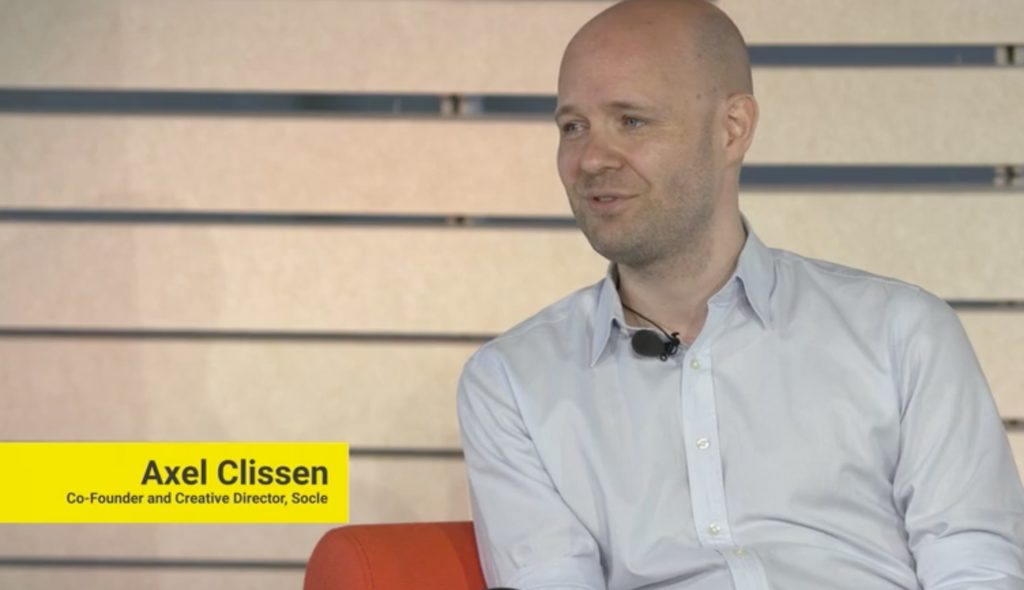
Axel brought his insights into the differences between the American and European markets to the ECO Solidarity session on the CLOSEUP stage. He also raised important points about the need for scalability and applicability of sustainable design concepts.
On Making Sustainable Design Scalable
“Scalability is a big keyword when it comes to bringing innovative ideas to the table. It’s also what makes the difference between a great idea and actual impact,” Axel noted during CLOSEUP.
The Algaeing project presented with the support of Goethe-Institut New York was a prime example of this attention to scalability. Renana Krebs, co-founder and CEO of Algaeing, which develops textiles and dyes from algae, said, “From Day Zero, we aimed for scalability because, coming from this industry, I know how it works from within. I know very well the supply chain, what it needs in order to really be able to make a change. For us, in order to really make an impact, we need to be scalable. We need to find a solution that works not only for one company, but works for everyone. We started with the textile and fashion industry, but we’re already now expanding to other industries like hygiene and automotive.”
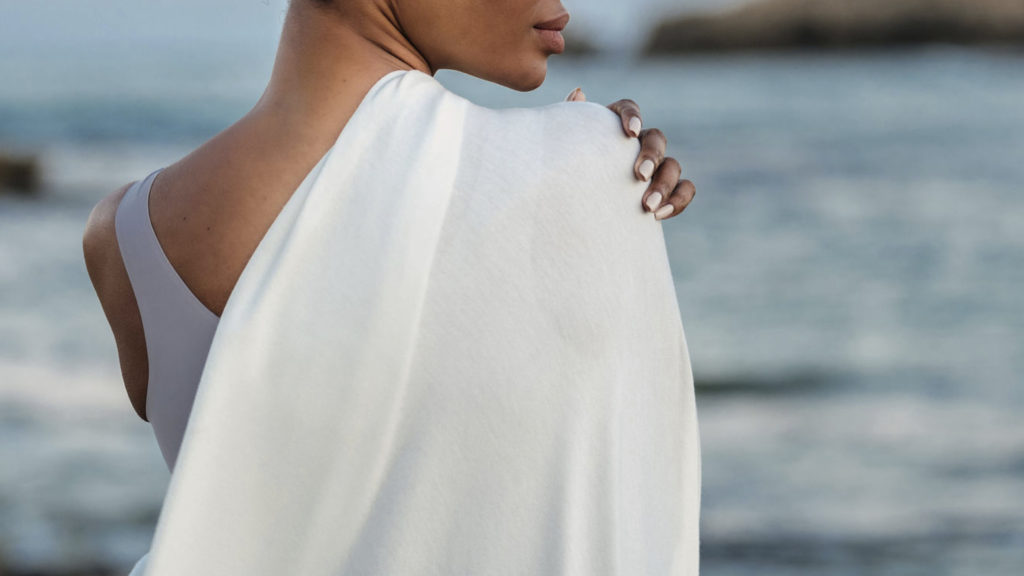
The Importance of Accessibility and Ease of Application in Sustainable Design
“We might have these great ideas that have a great impact when it comes to ecology, solidarity and so on. But in the end it comes down to the everyday use of a user that will have [the most] impact,” Axel stated. He cited NAS-DRAS Conscious Design‘s concept for urban farming, presented with the support of Polish Cultural Institute New York, as an example of an easily applicable concept.
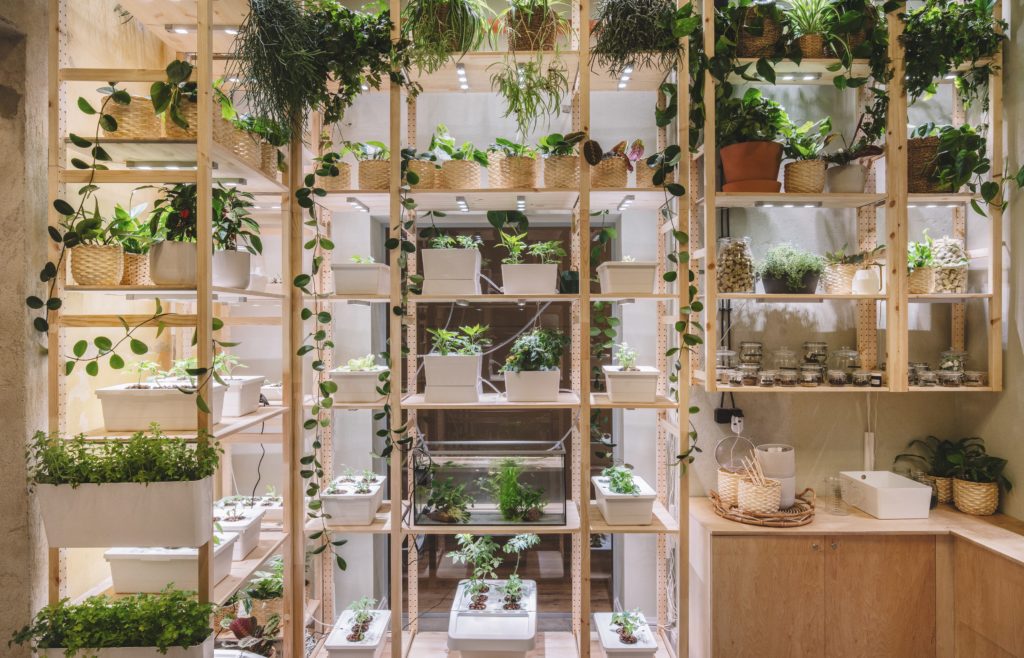
Marrying Form and Function in Sustainable Design
How important is the role of aesthetics when it comes to sustainable design, Axel asked of the featured designers during the “Sustainable Material and Process: Research and Innovation” ECO Solidarity session at CLOSEUP.
Archibald Godts of Studio Plastique replied, “Aesthetics are very important but secondary to the process of understanding; the process of finding relevance; working together with clients, with the actual stakeholders and context in order to find a real match between material and where it will live and function. I think aesthetics and shapes fall in a secondary place, although very important of course.”
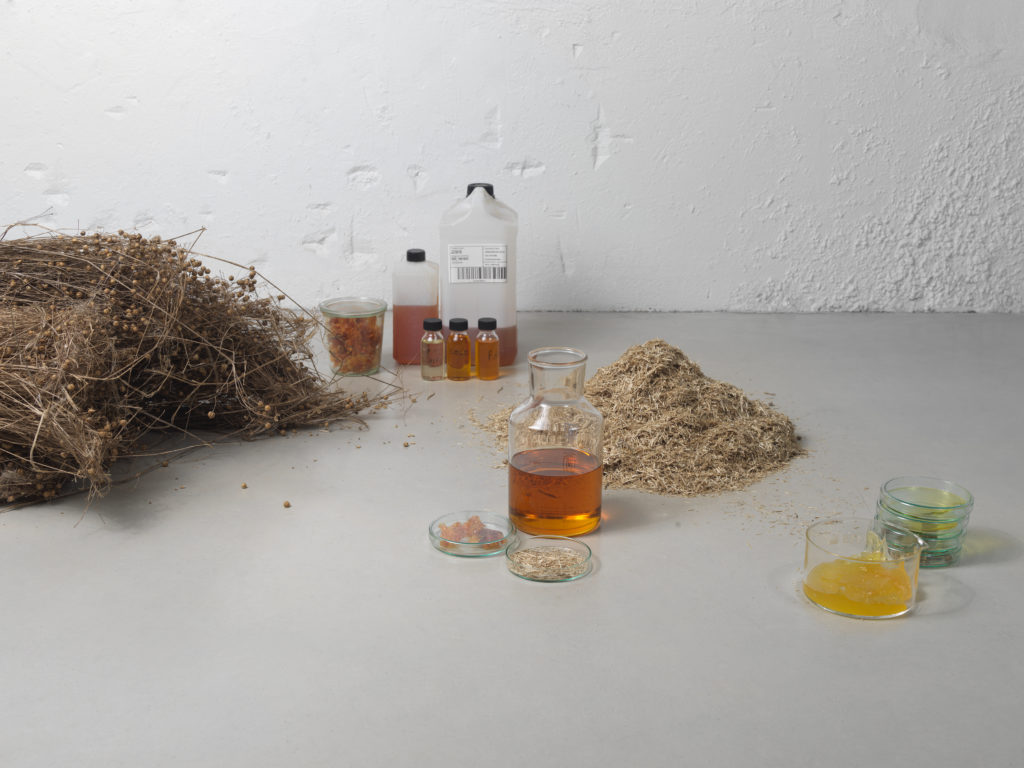
His Studio Plastique co-founder Theresa Bastek added, “The material creates the main language and if we follow that, it creates a sort of completely new aesthetic. It doesn’t need to stand in competition anymore with something that is already existing, but creates a language of its own, which is maybe stronger than trying to artificially achieve an aesthetic that it can never reach perhaps.” Studio Plastique’s Linen Lab, presented with the support of Wallonie-Bruxelles International New York, explores the possibilities of flax.
Axel suggested during the ECO Solidarity session during CLOSEUP that an interdisciplinary approach will bring about change. He encouraged the European studios featured to continue to connect and collaborate:
“What I’ve learned from my experience being both in Europe and in the US is that there’s a symbiosis possible where what you pick up in Europe of ideas and innovation can also be applied here, but here we learn about moving fast, moving forward, having that impact and bringing that to market. If those two things can be combined with your amazing ideas, impact will surely follow, so I would love to see that happen.”
“ECO Solidarity comes at a time where the world is realizing more than ever that joint efforts are essential to create a unified and sustainable path forward,” he added.
We couldn’t agree more. Visit the ECO Solidarity online exhibition through Aug 15, 2021 on the new WantedDesign Online platform at www.wanteddesign.online and watch the CLOSEUP replays through July 2021 at closeup.design
The 2021 edition of ECO Solidarity is produced and presented in partnership with the European Union National Institutes for Culture (EUNIC) organizations: Austrian Cultural Forum New York, Delegation of the Government of Flanders to the USA, Wallonie-Bruxelles International New York, Czech Center New York, Goethe-Institut New York, Arts Council Malta in New York, and Romanian Cultural Institute New York.


